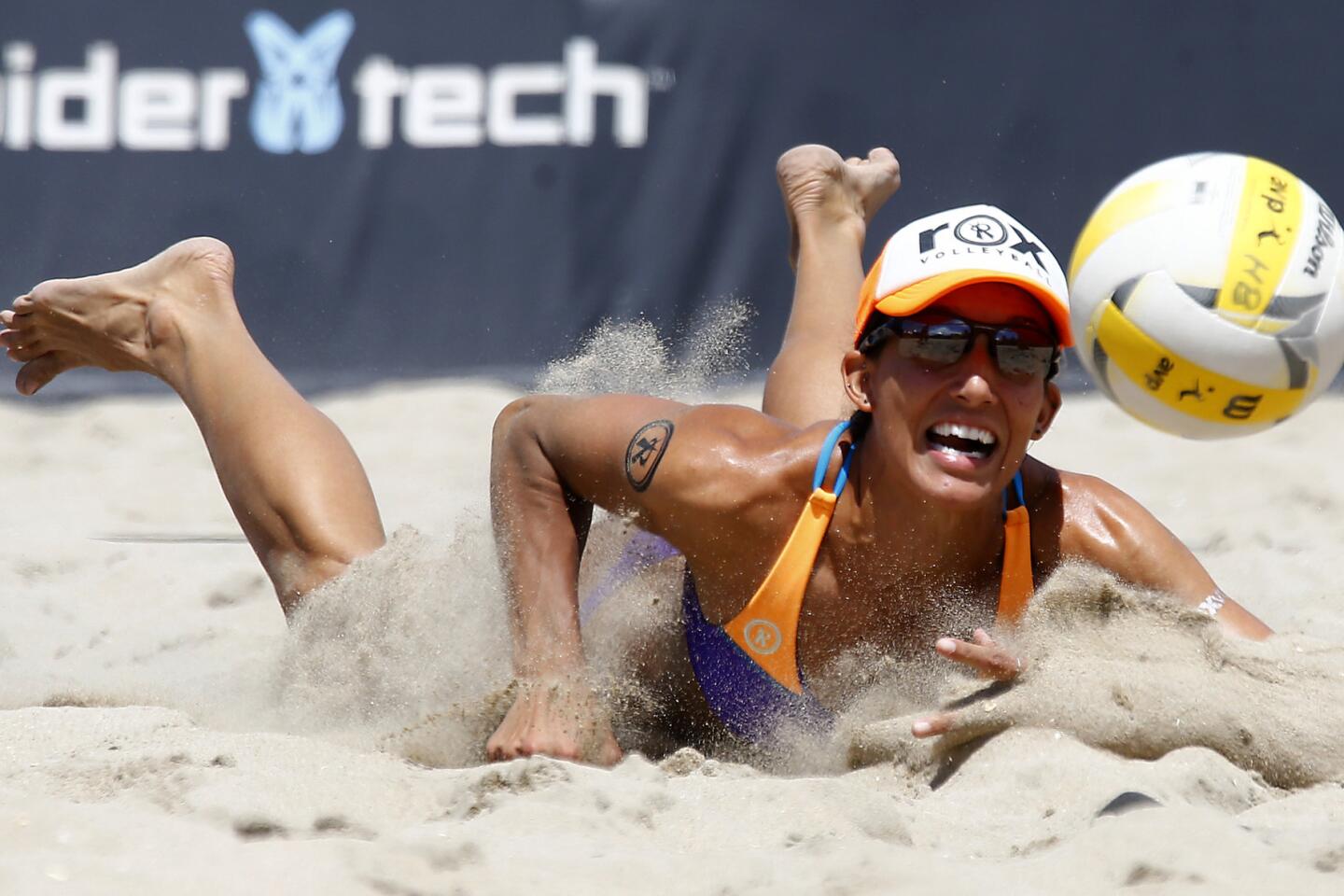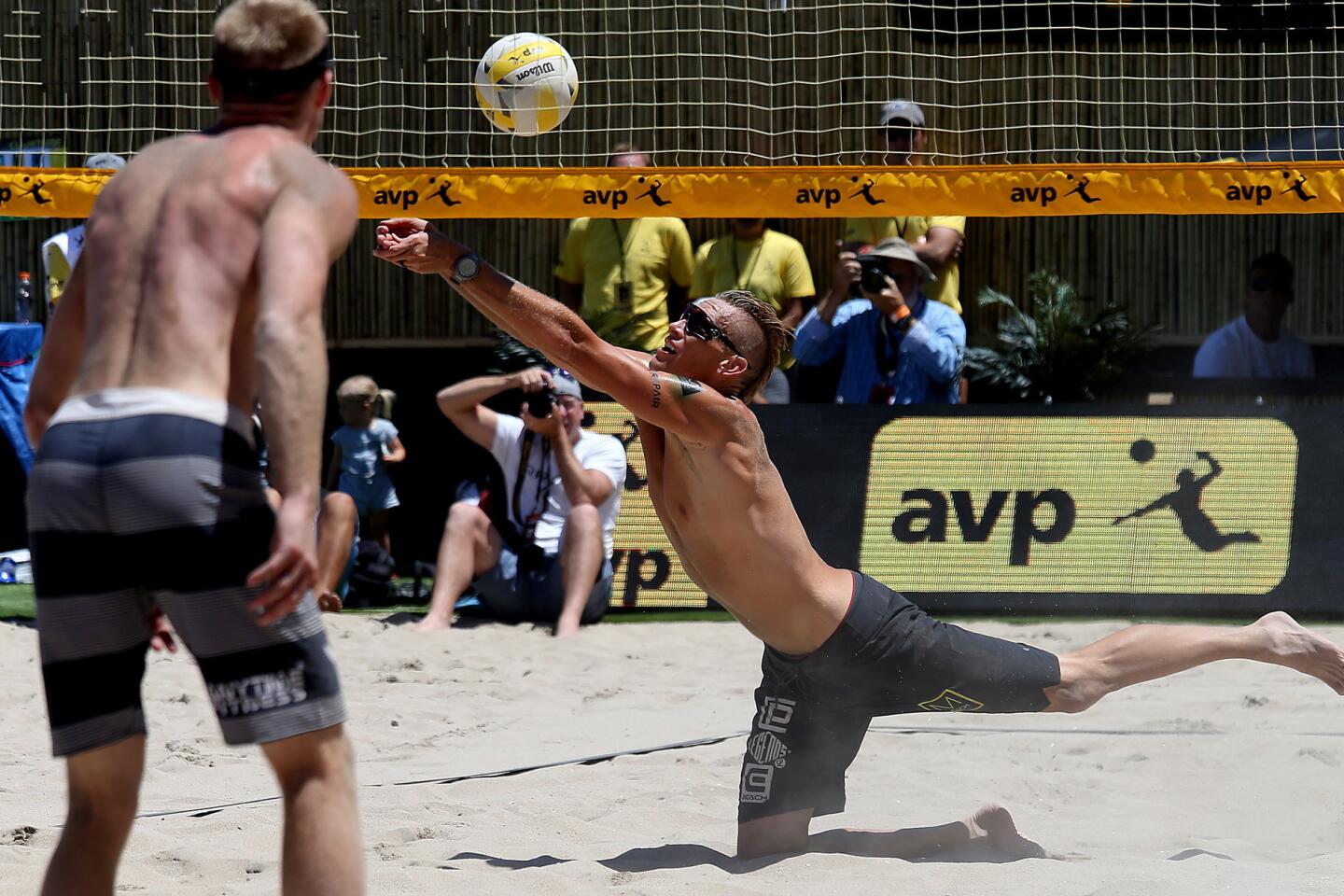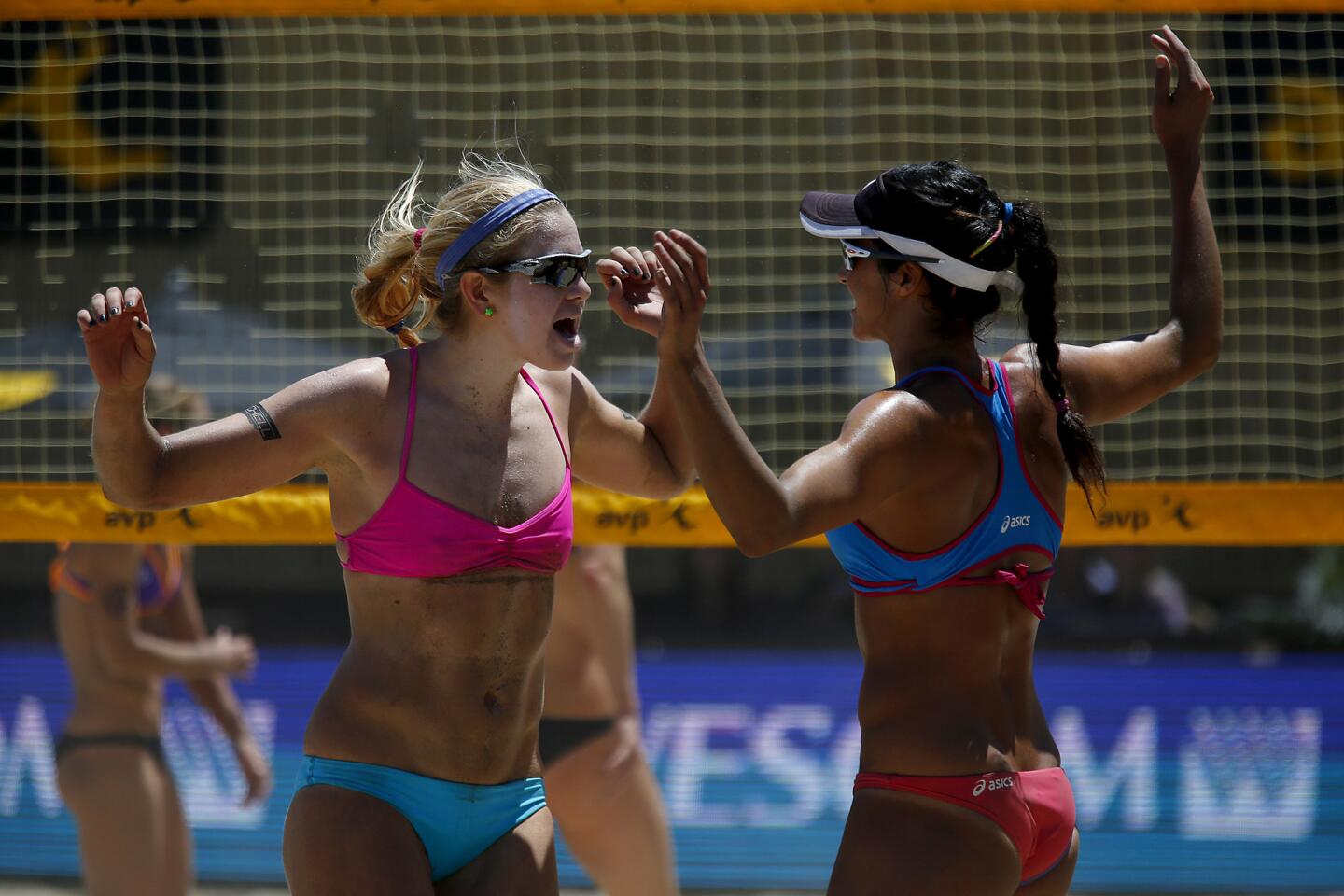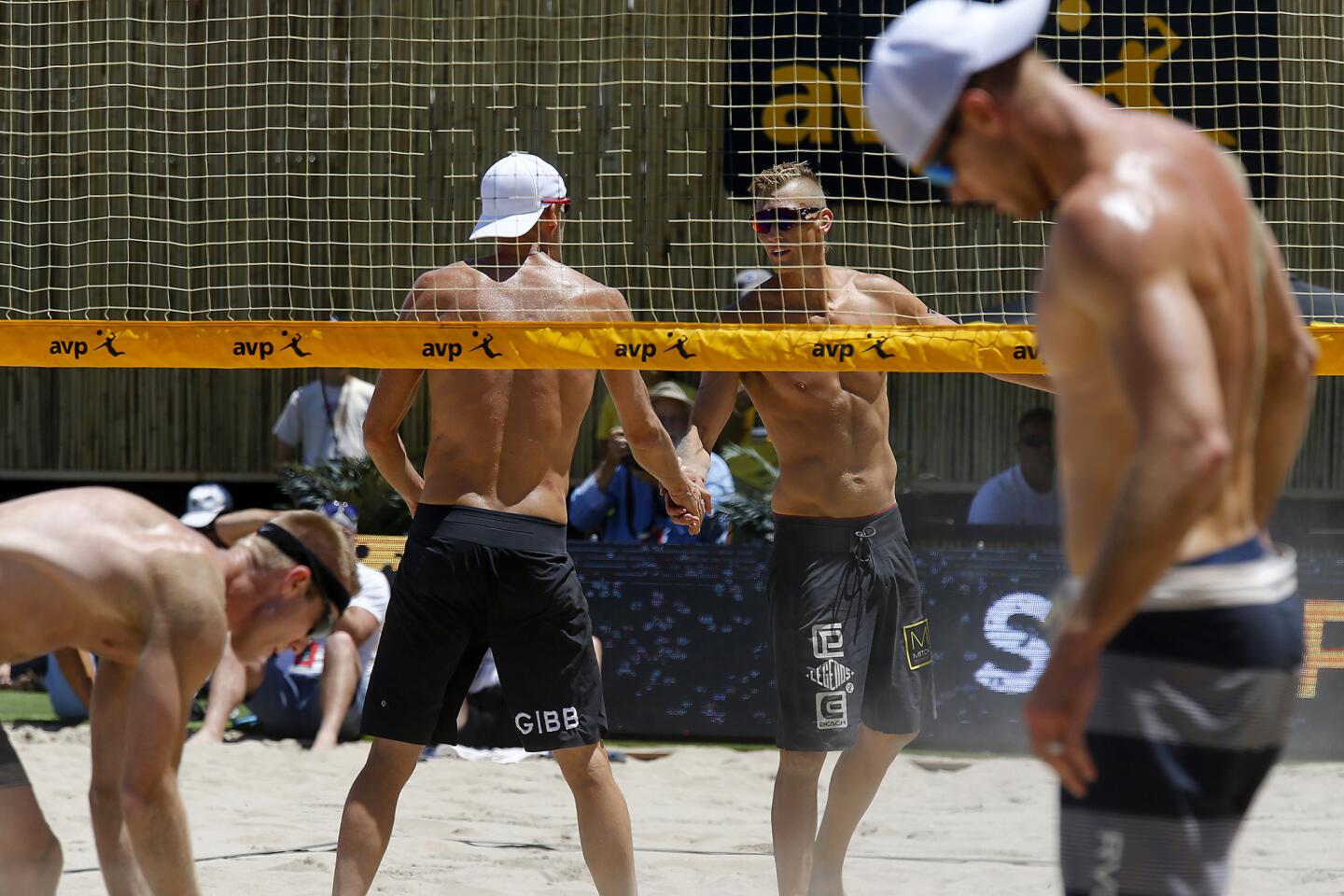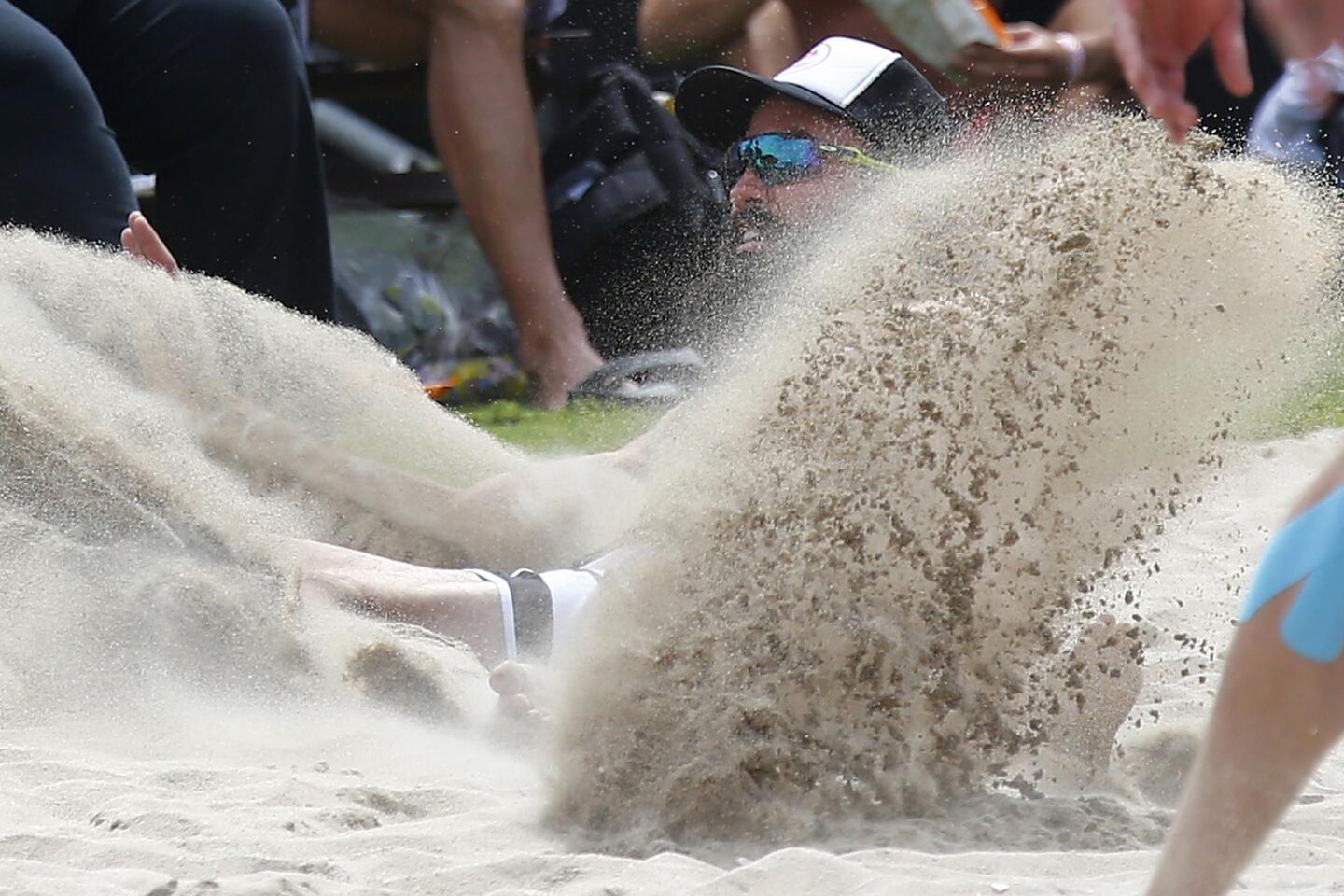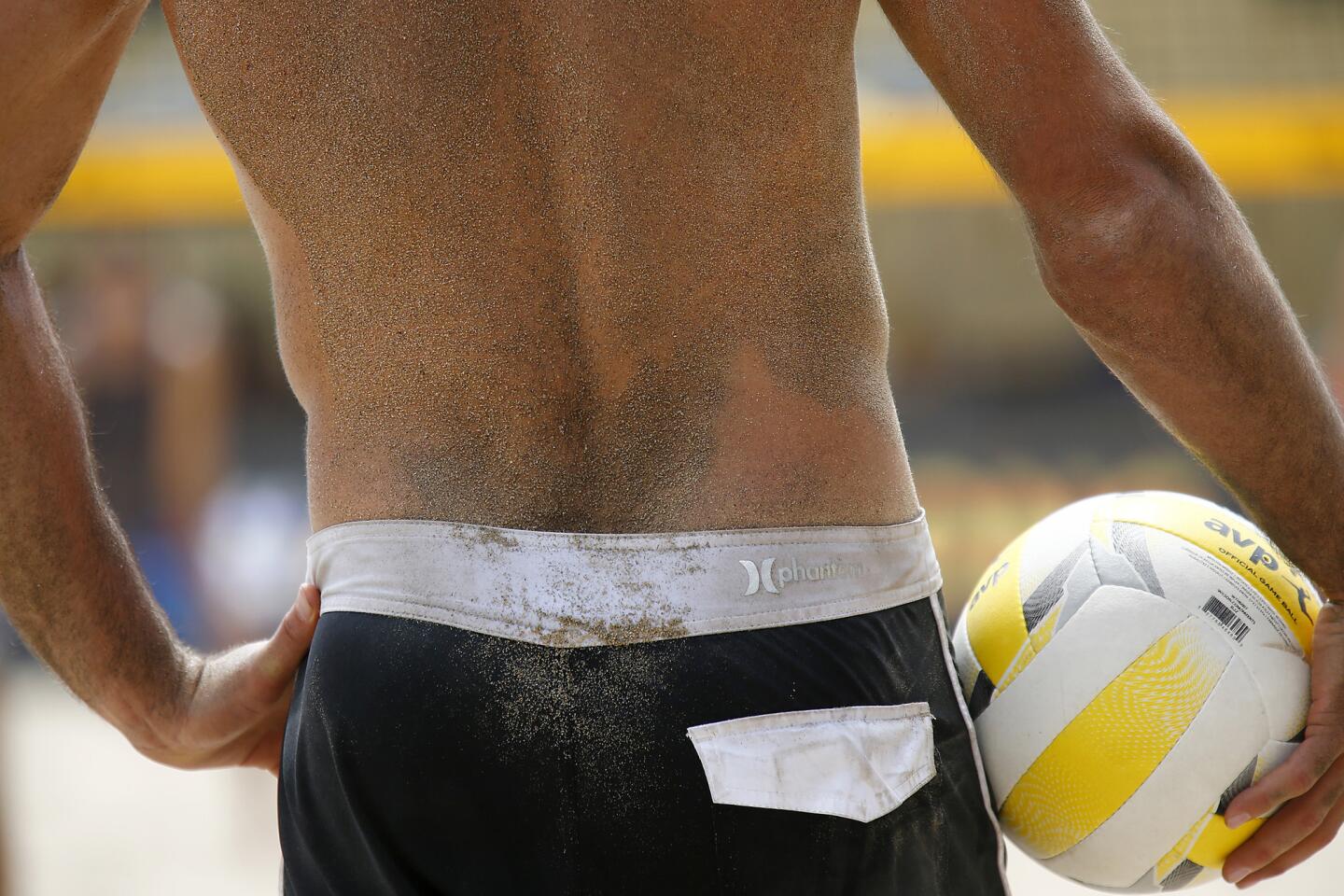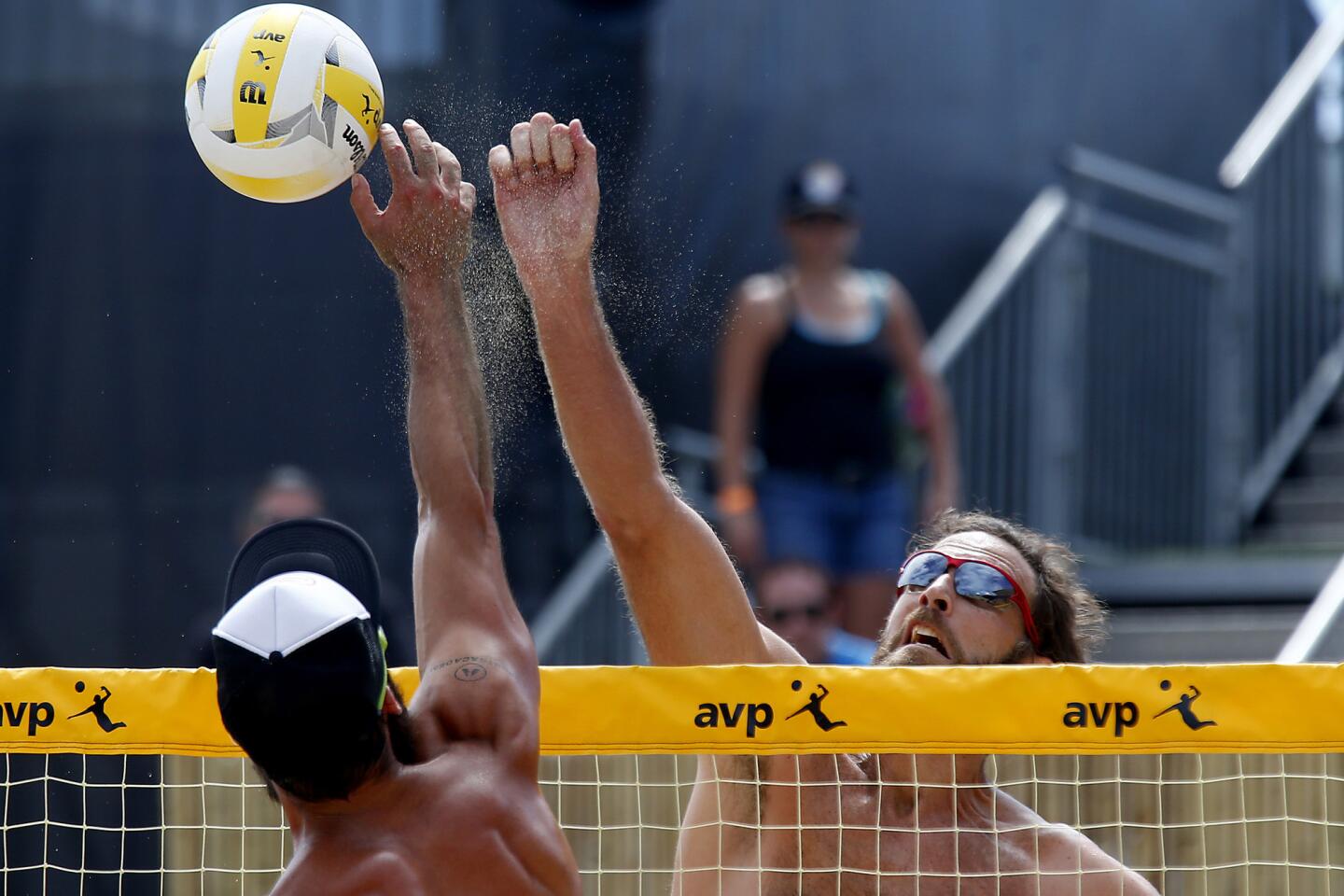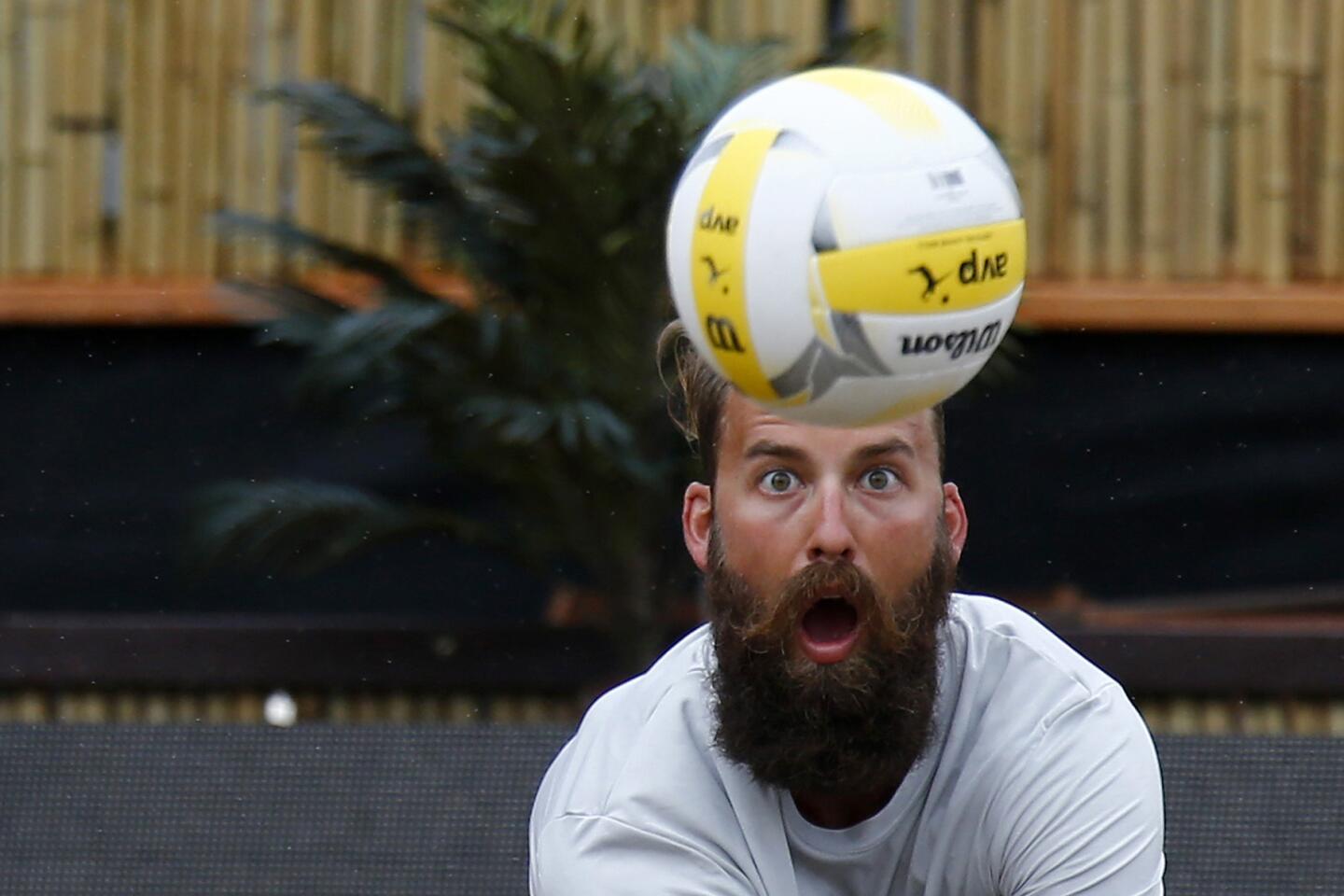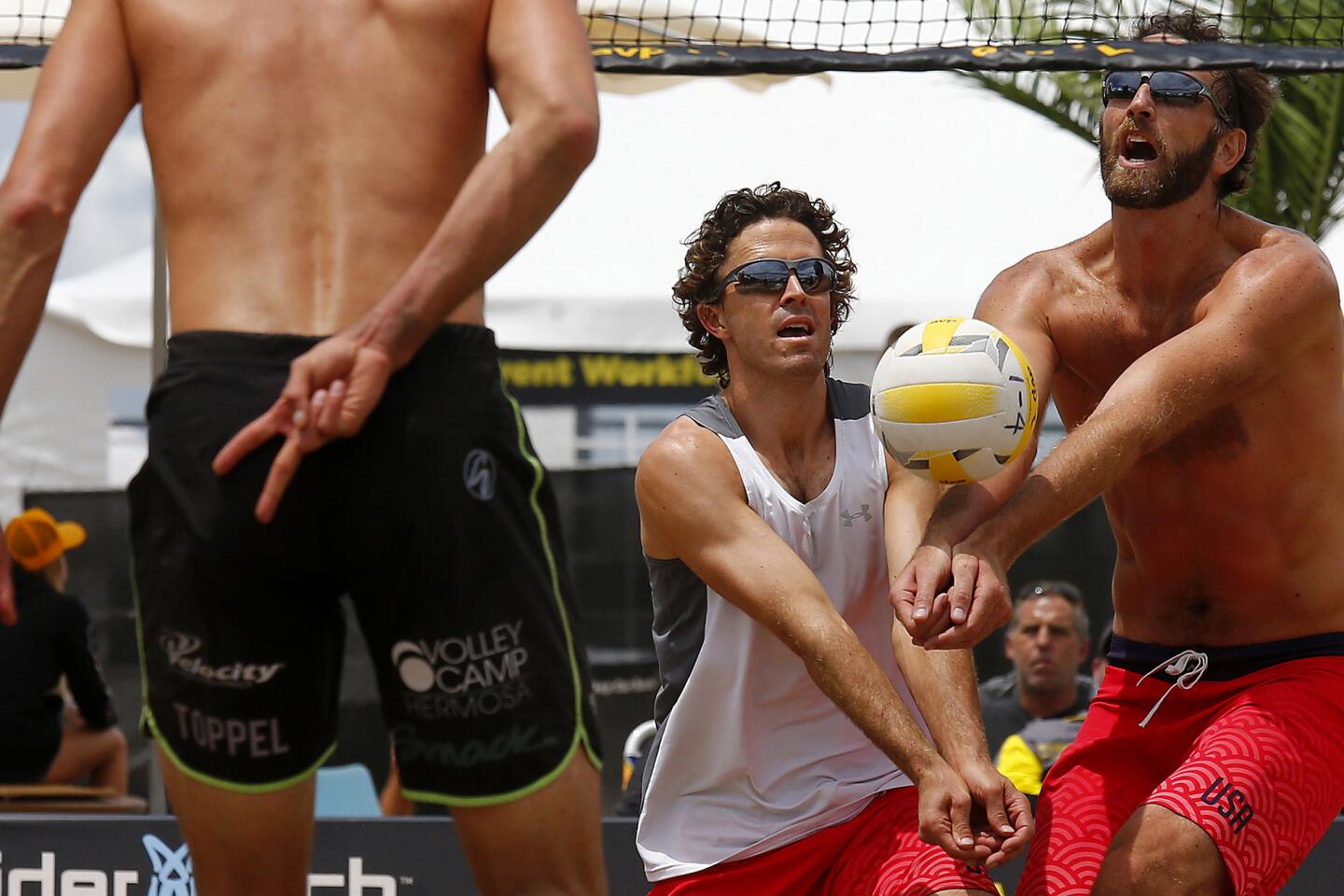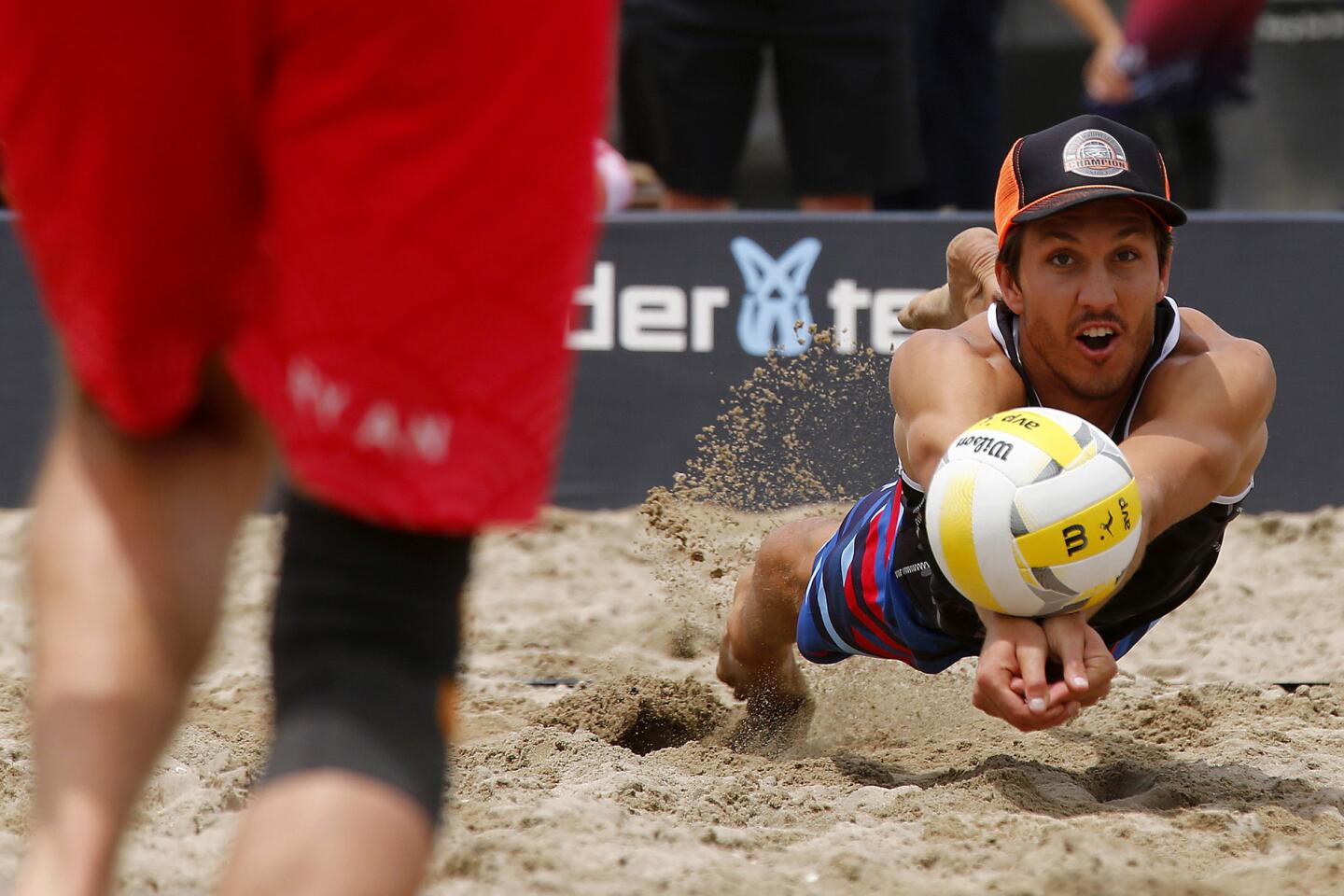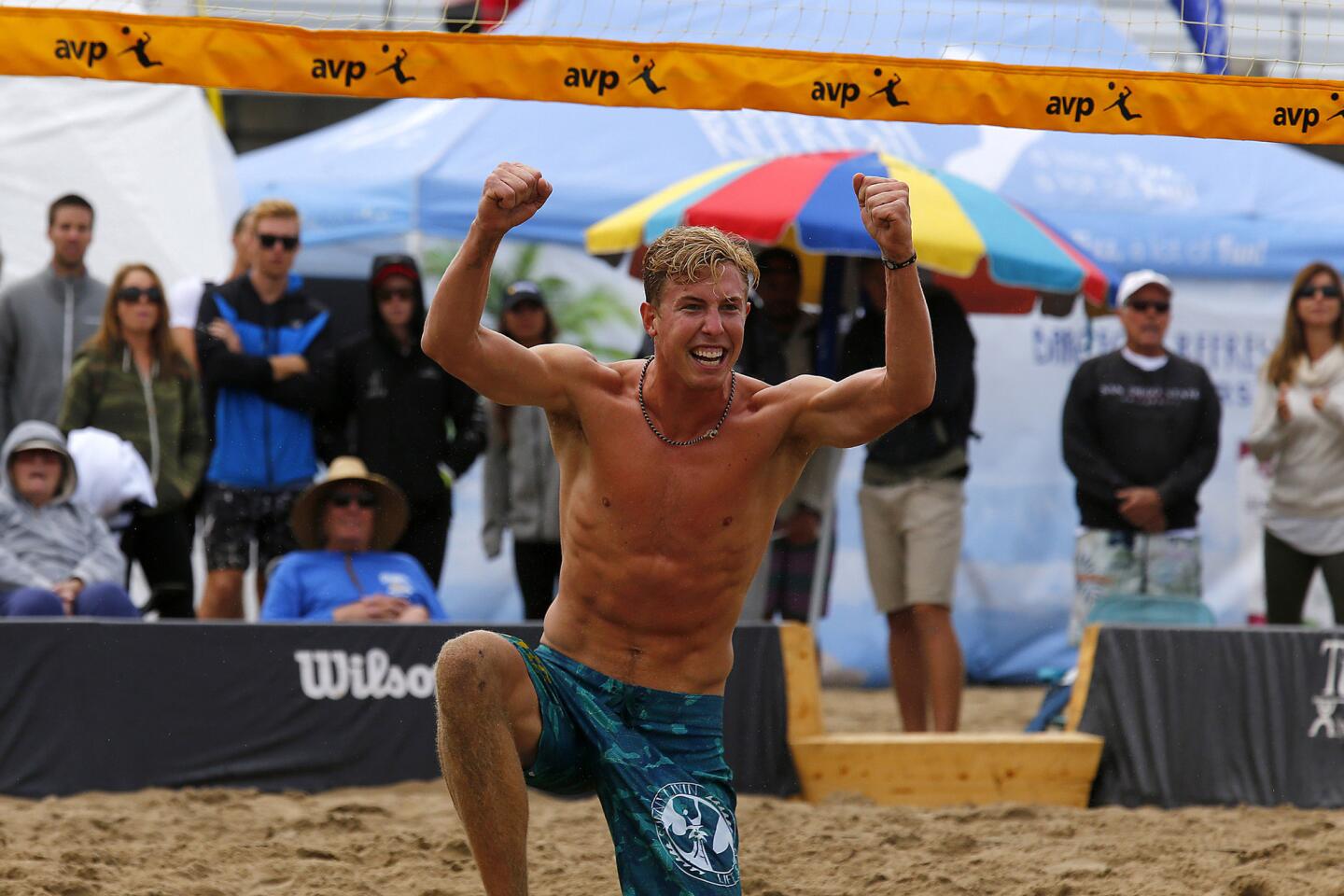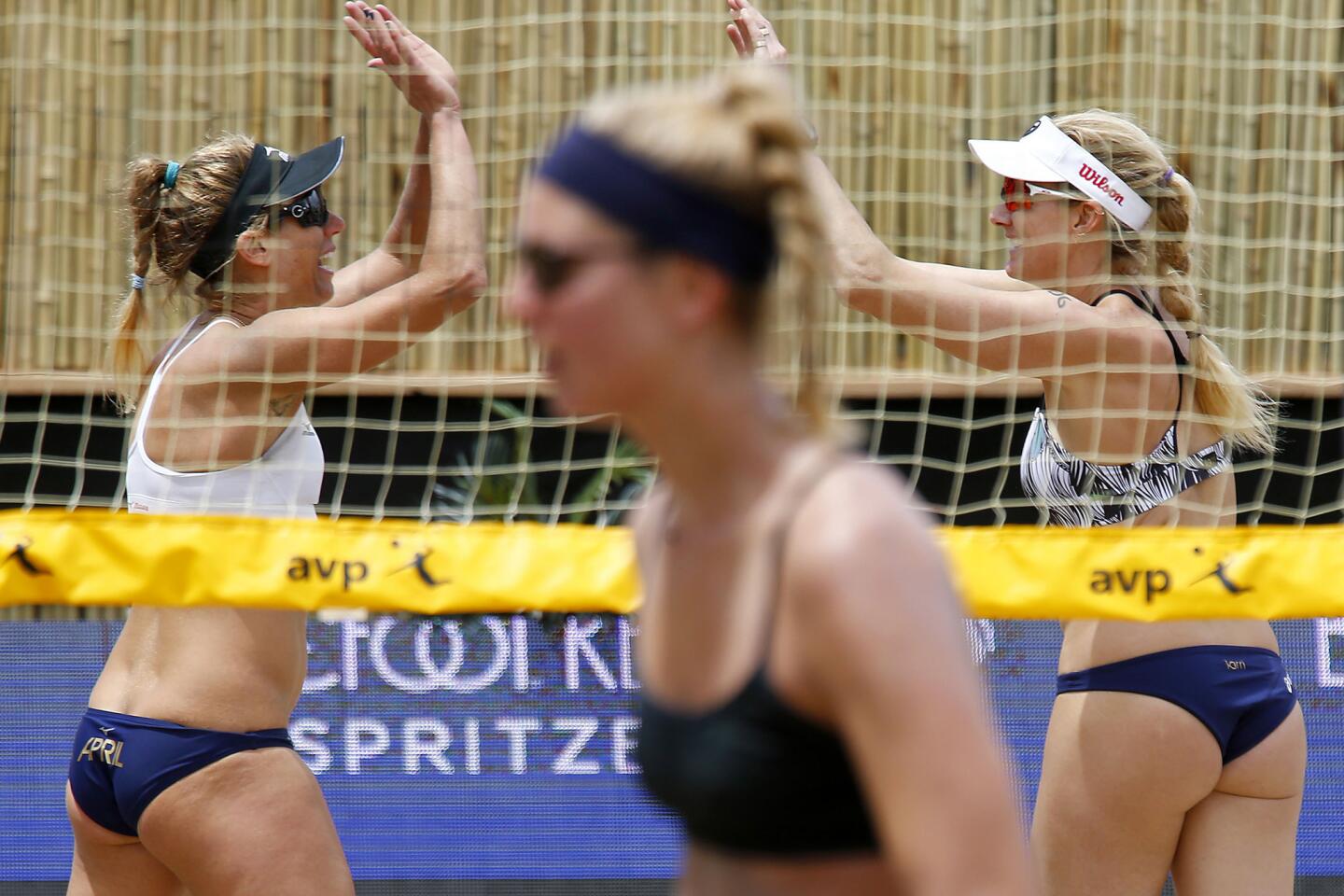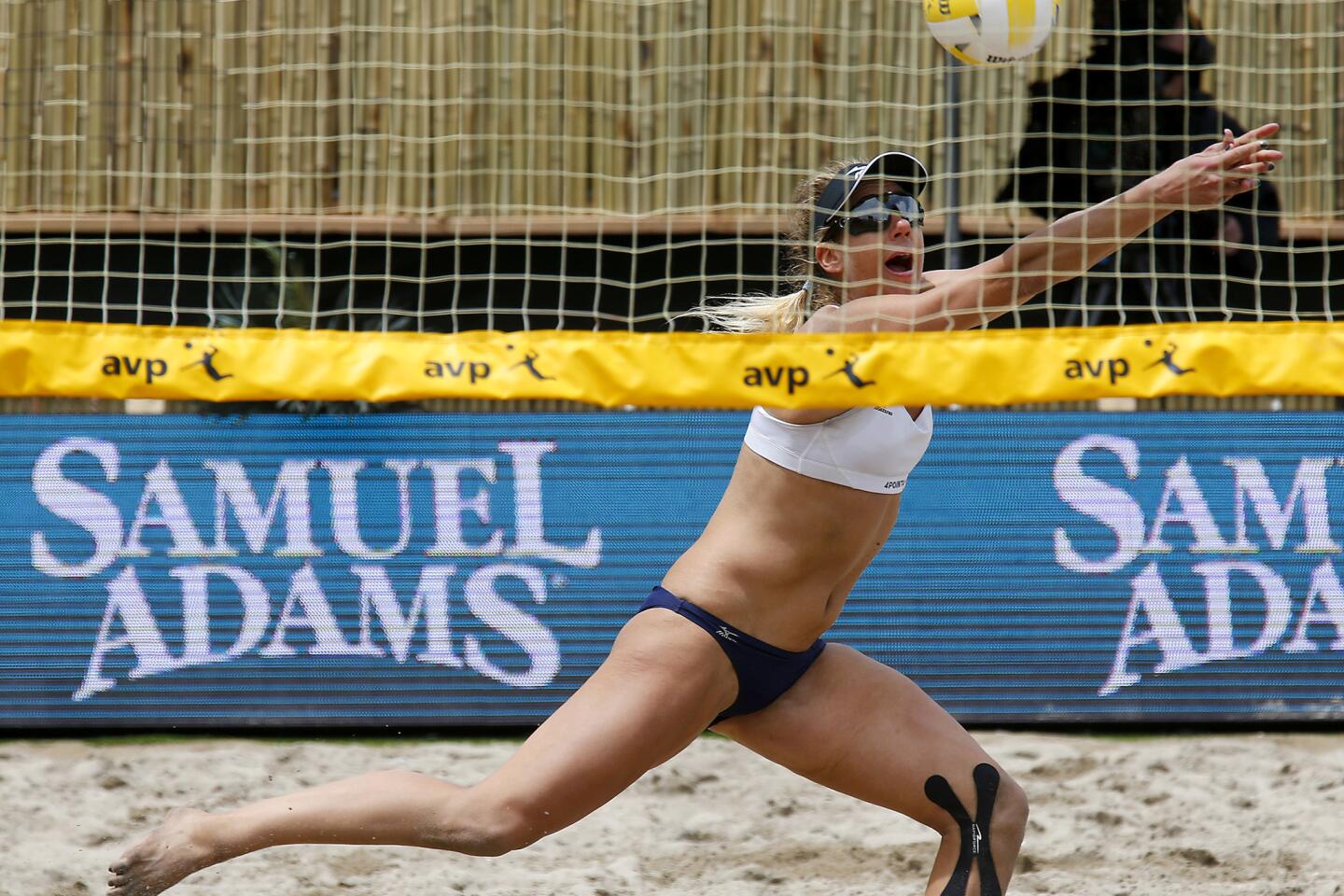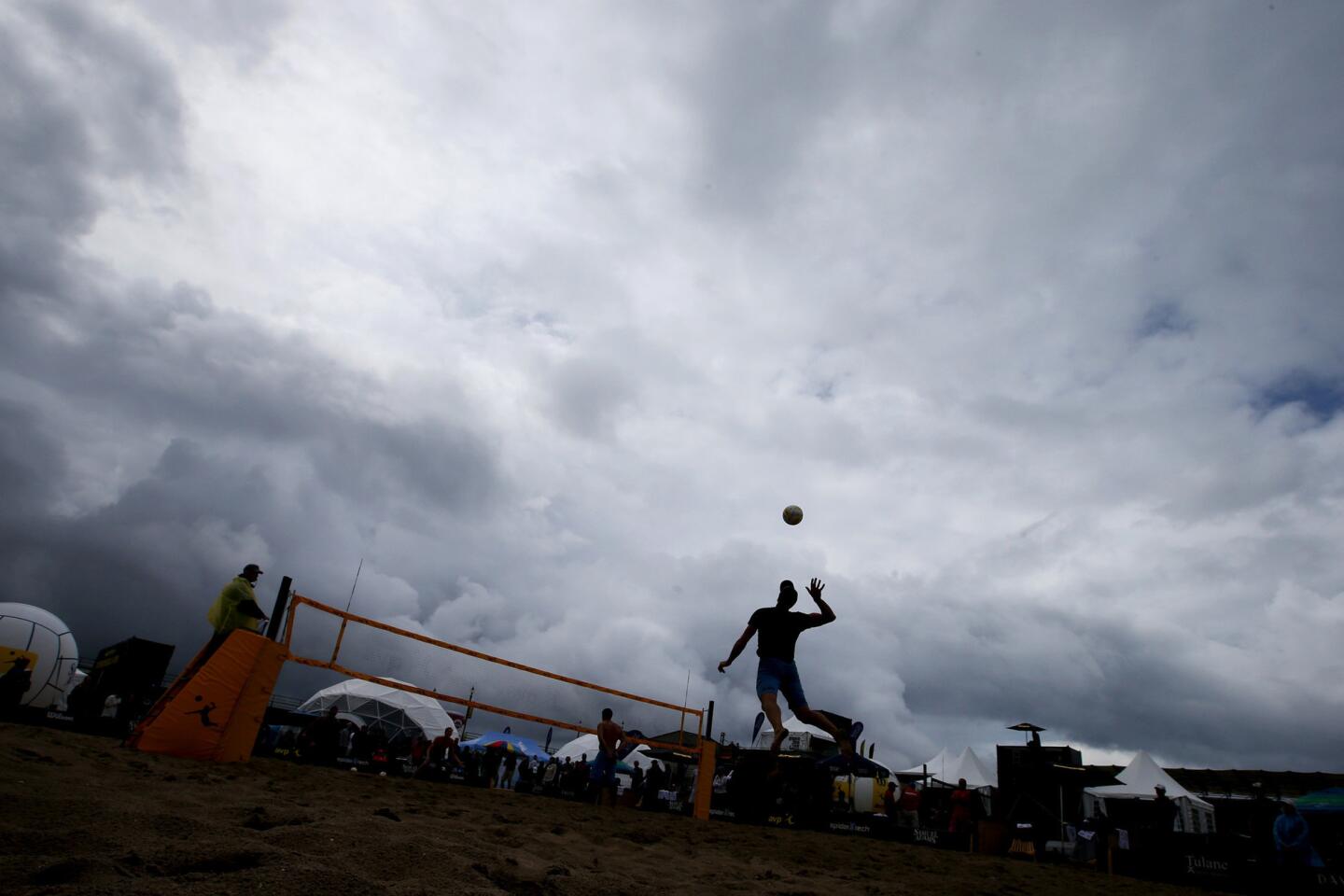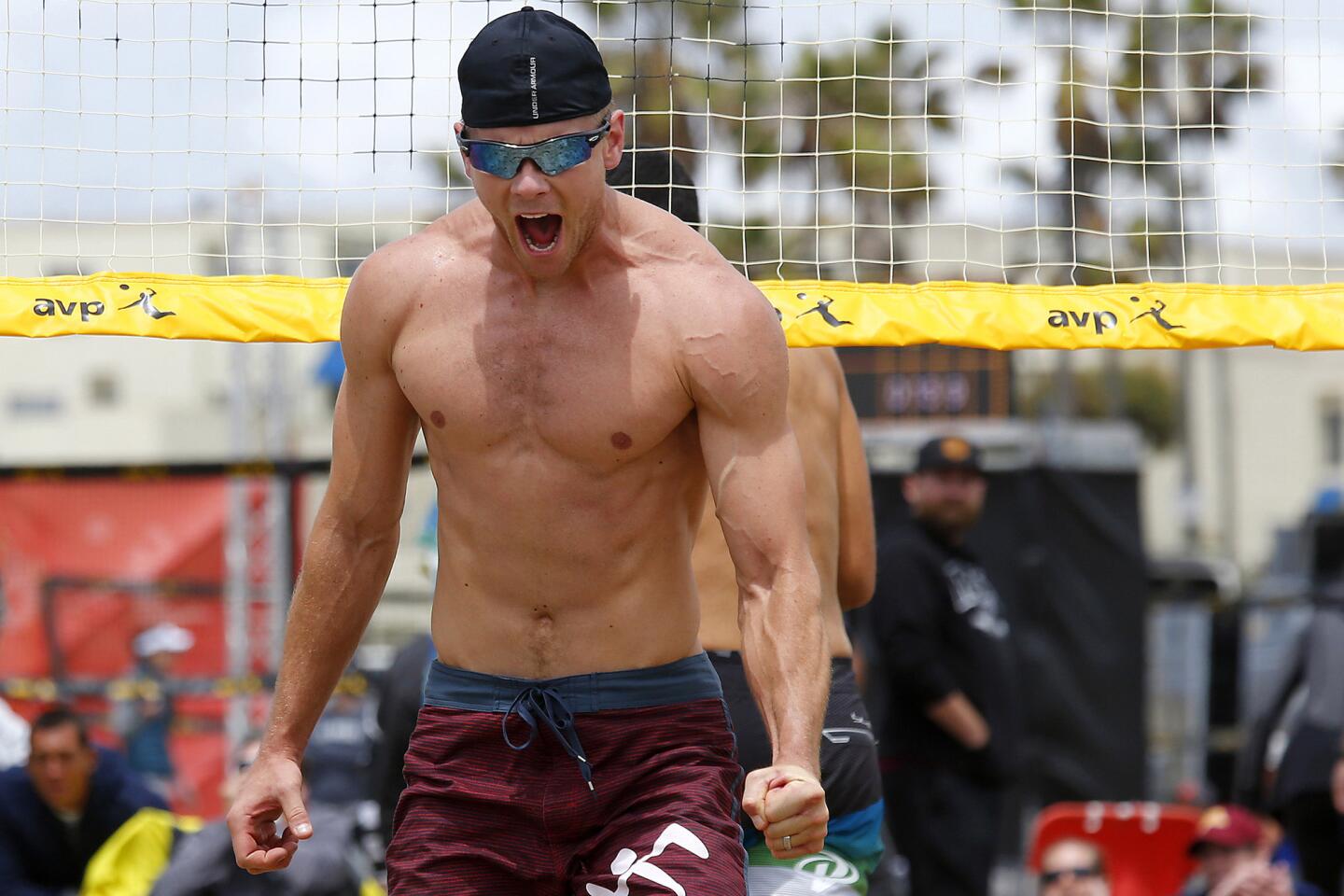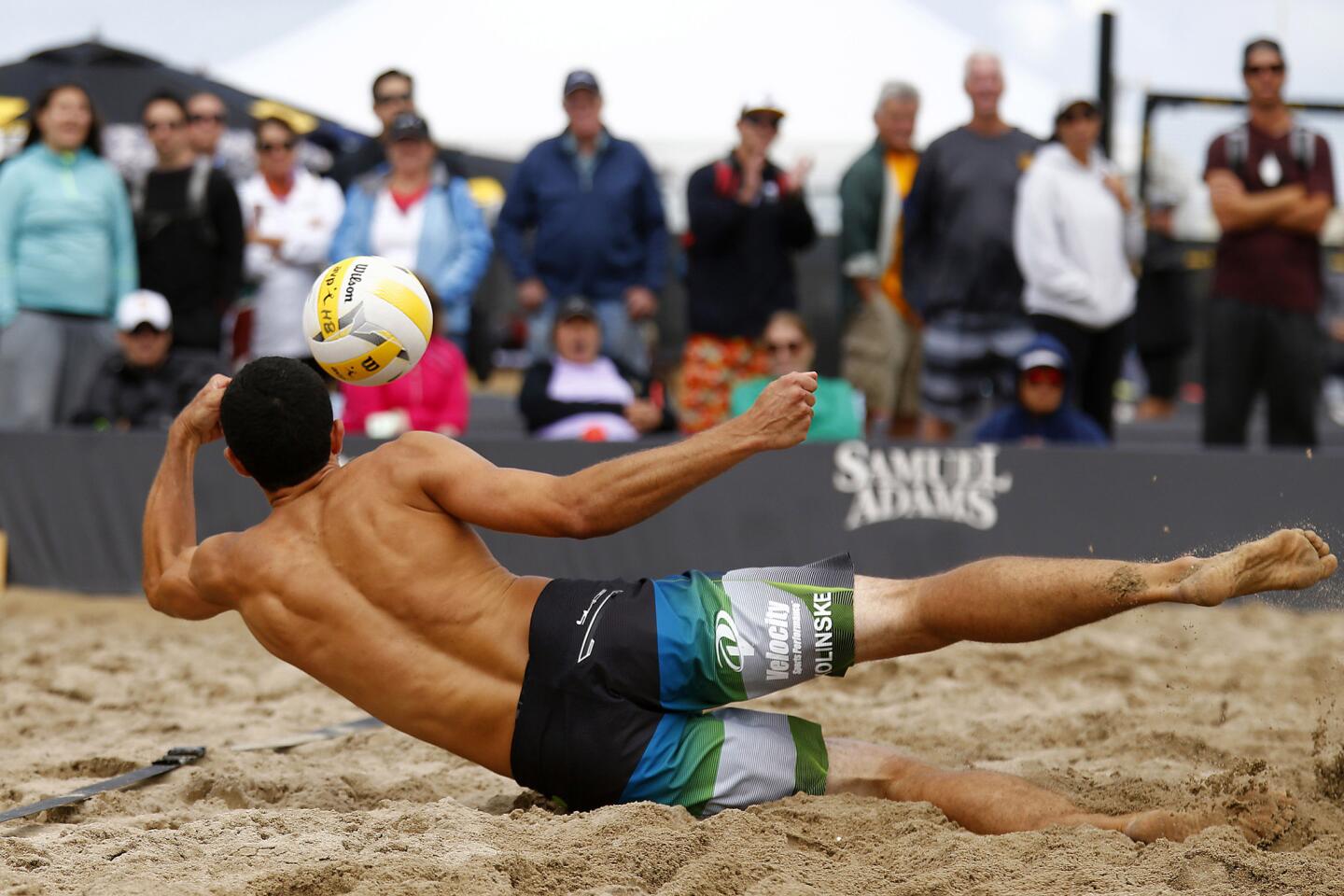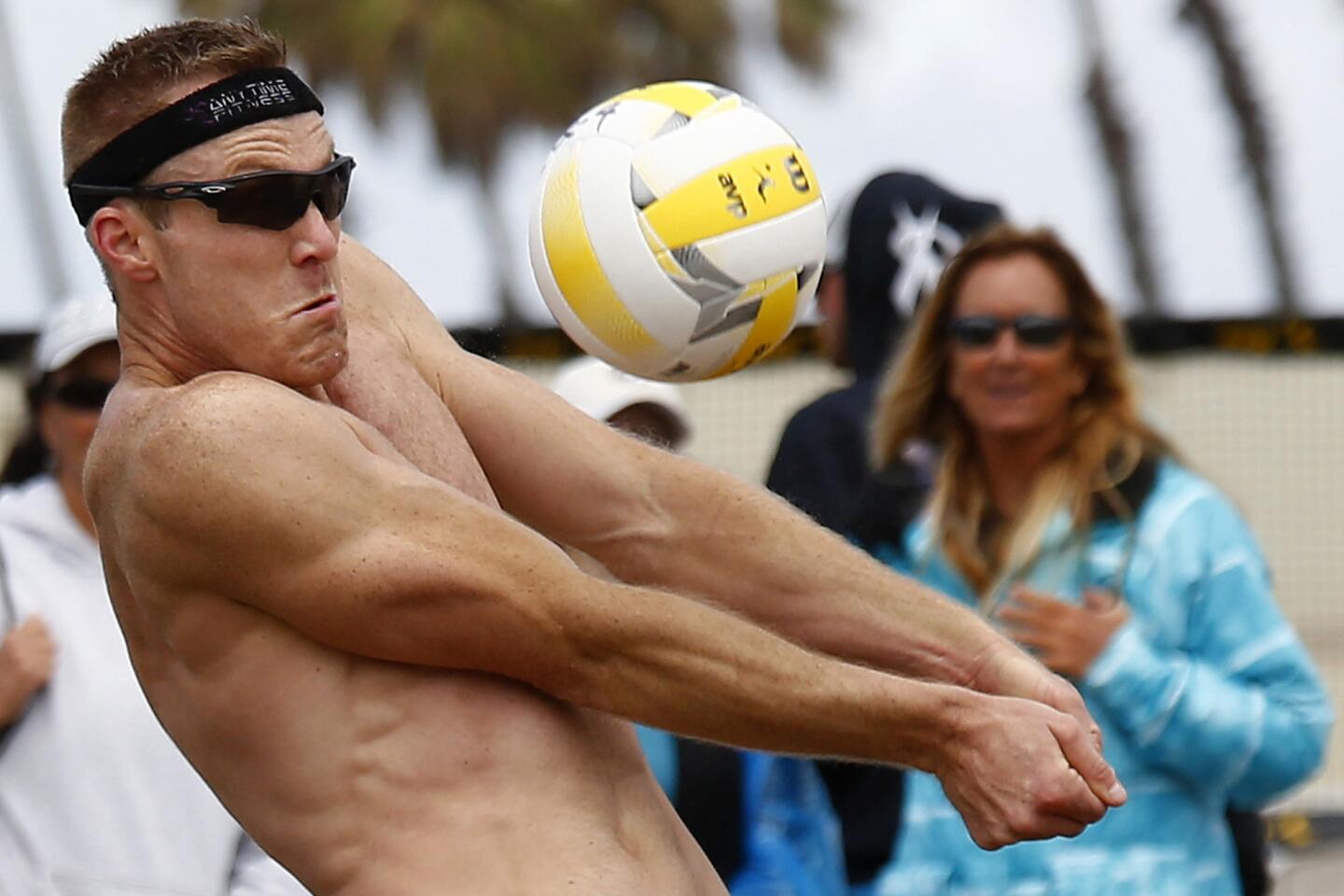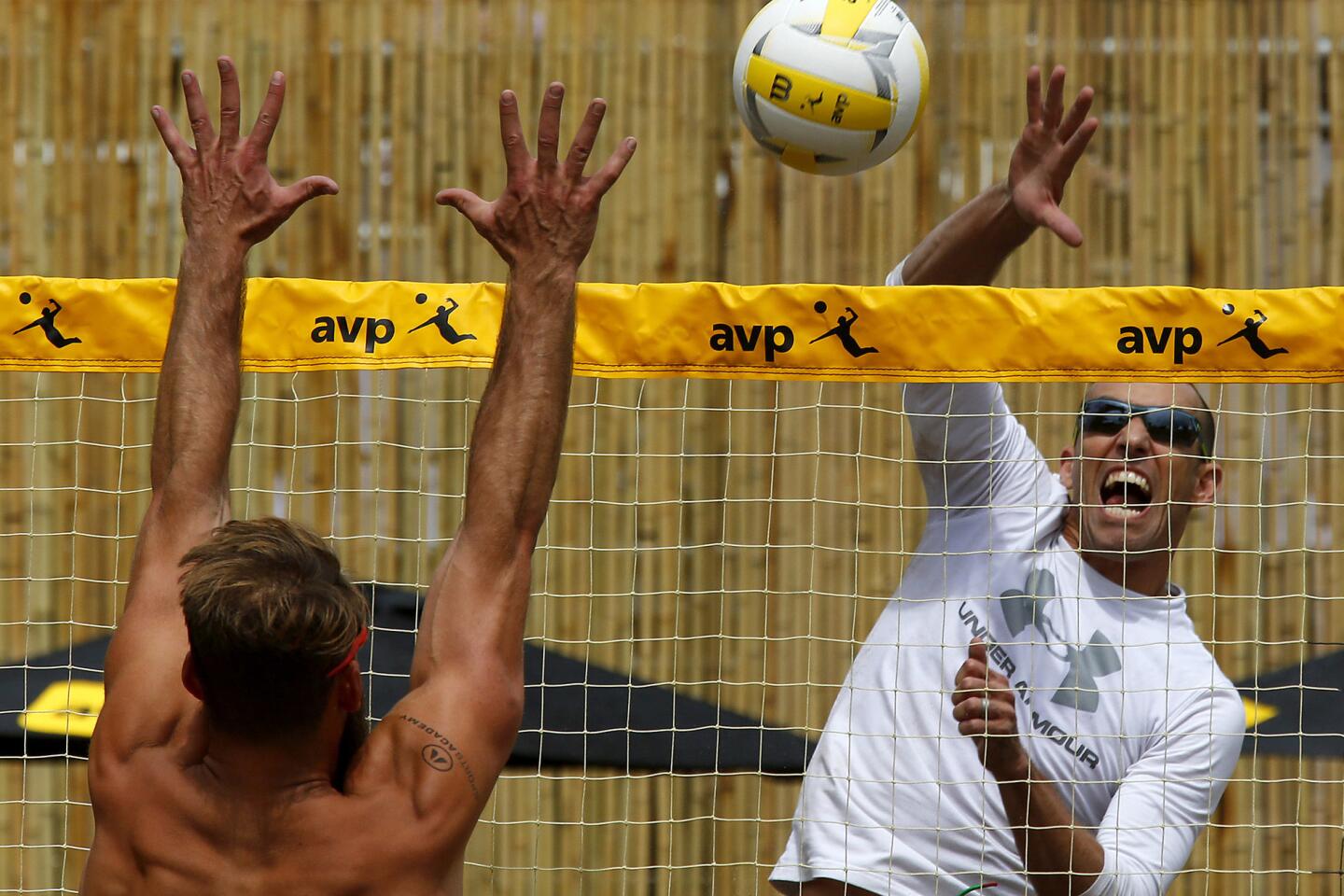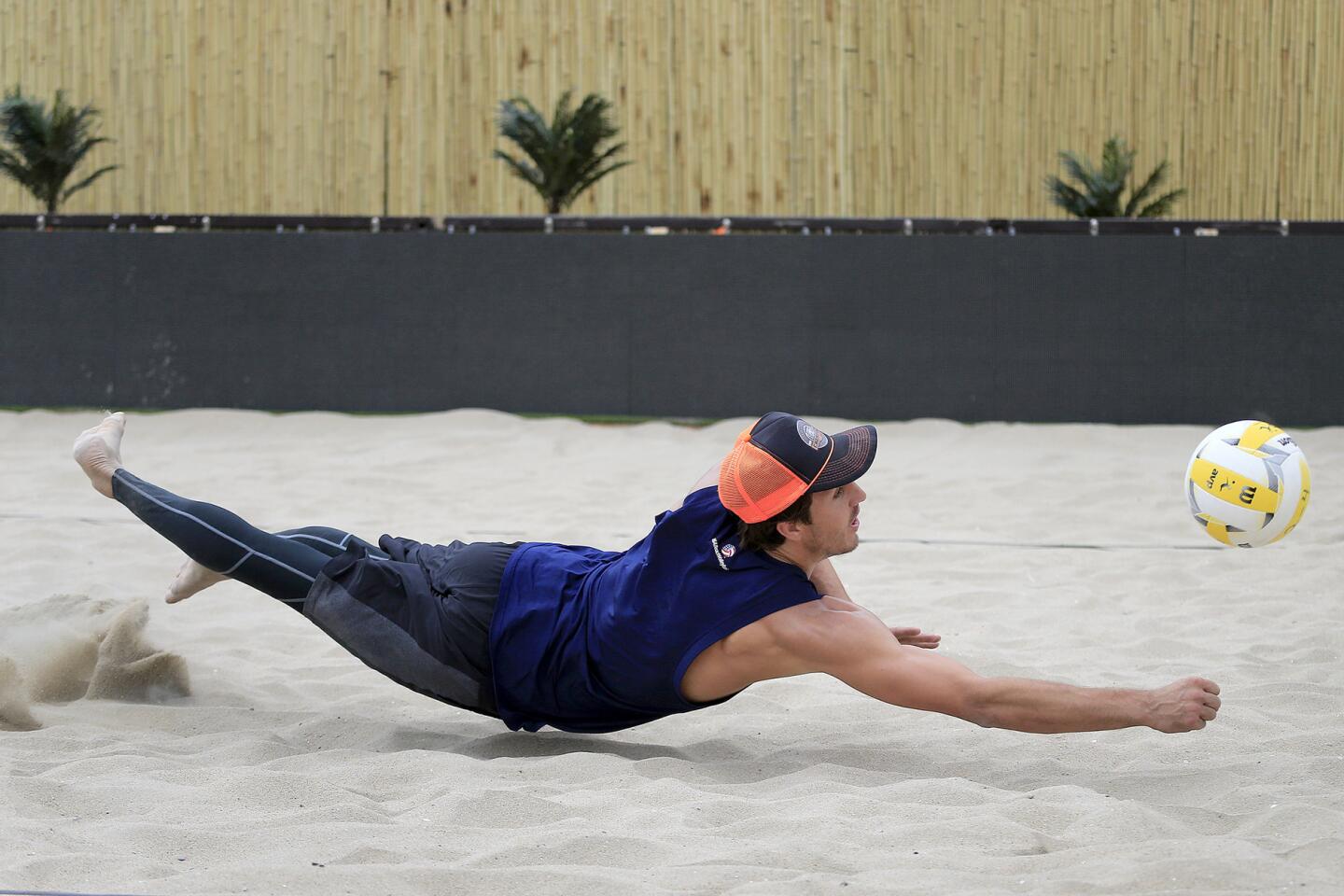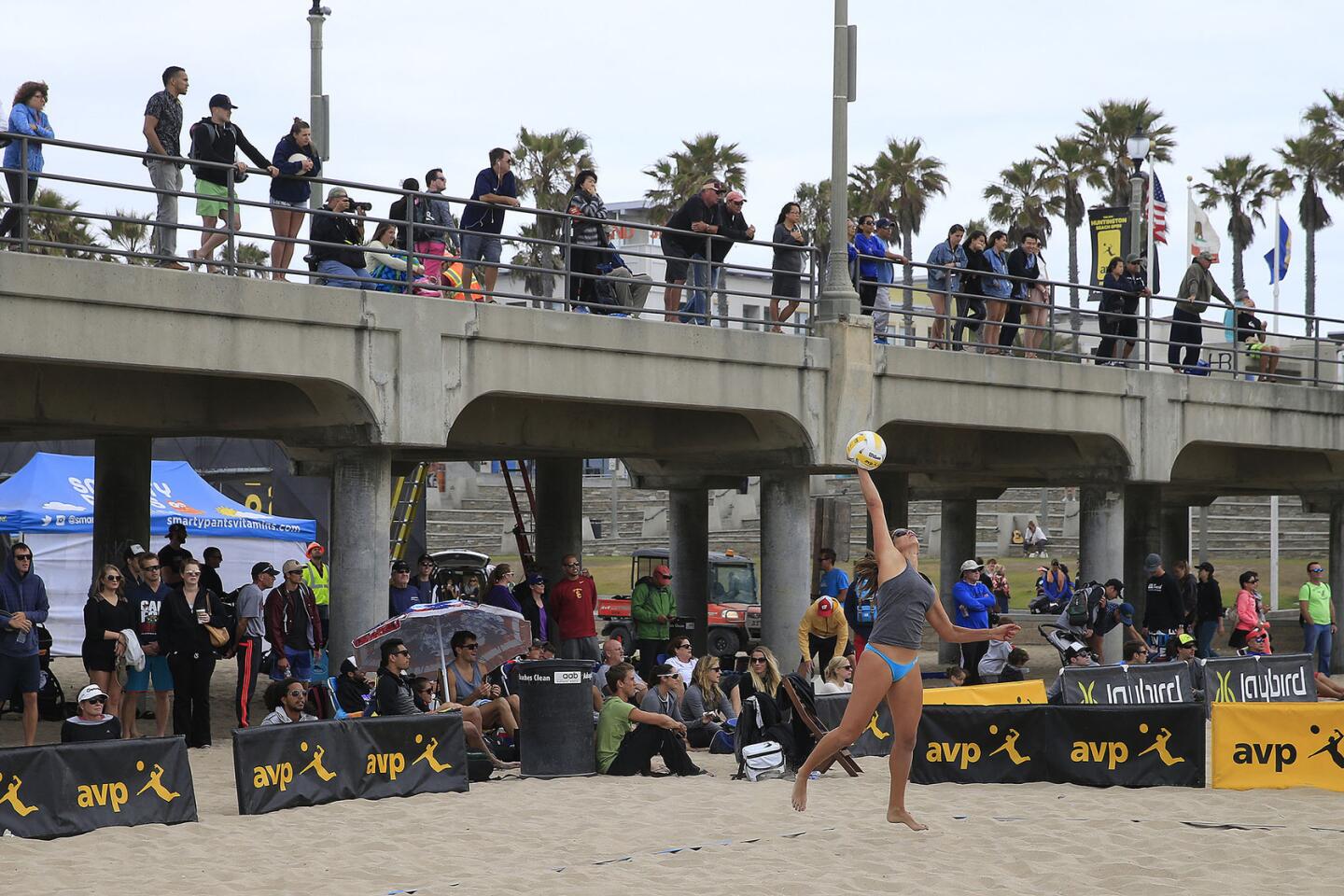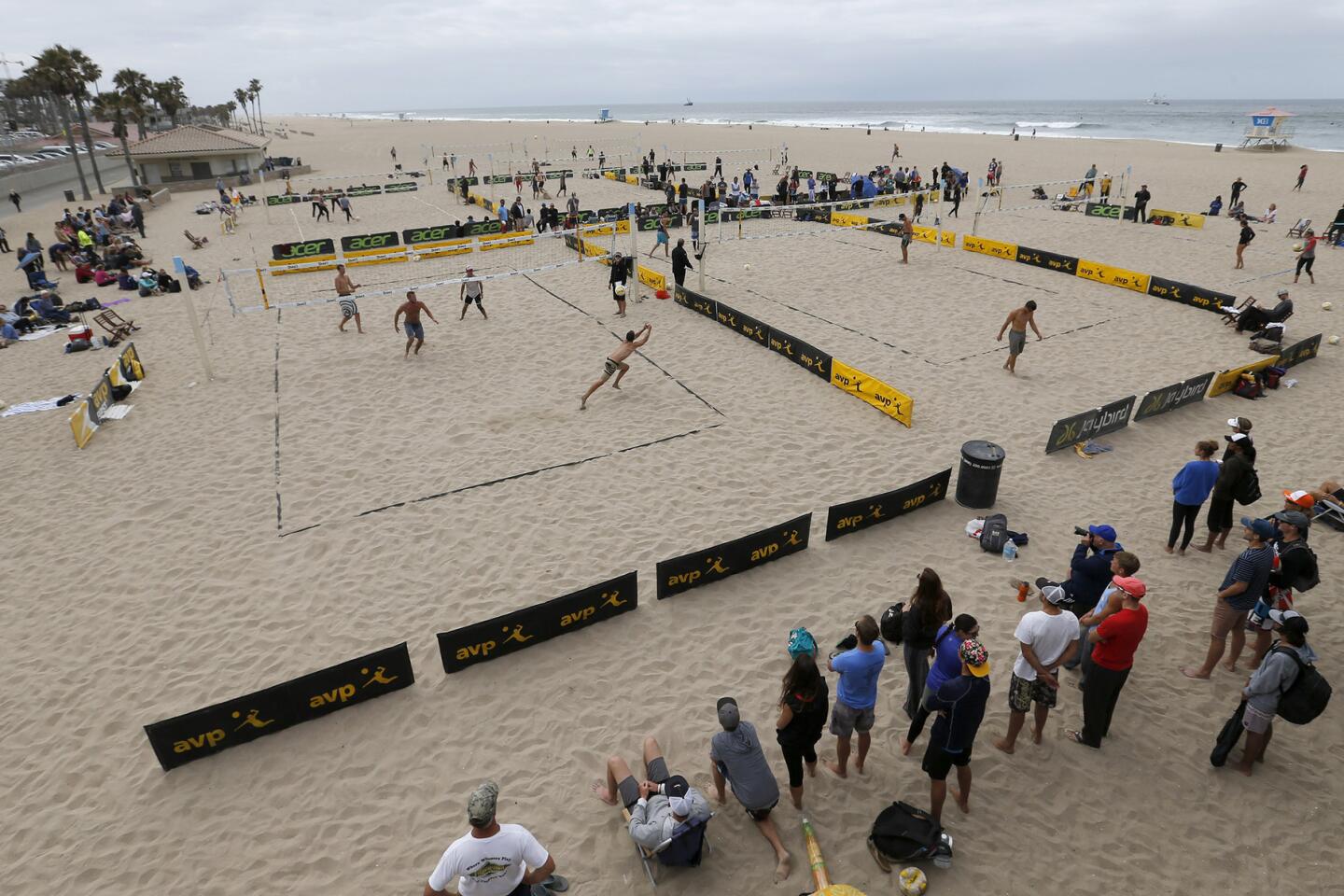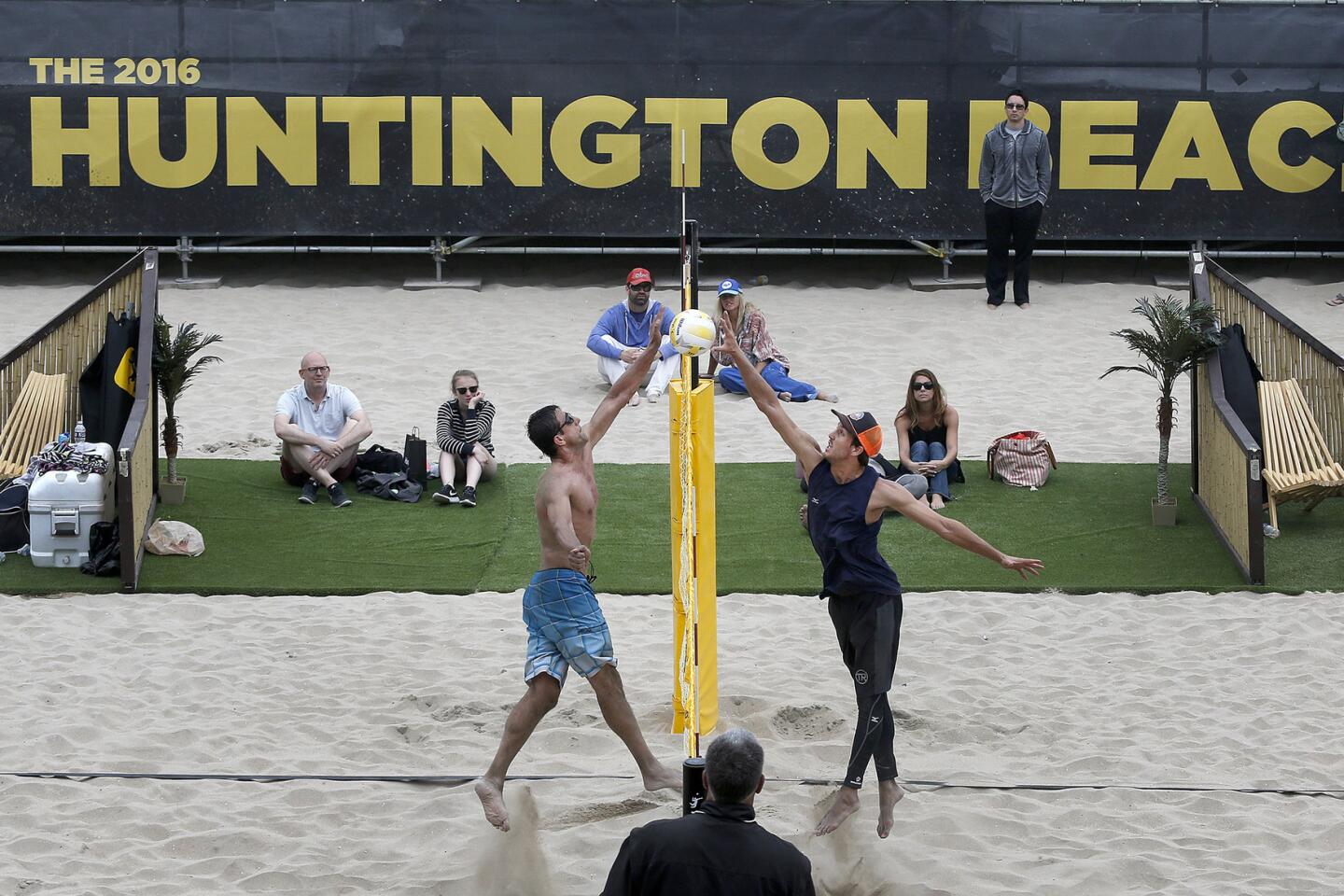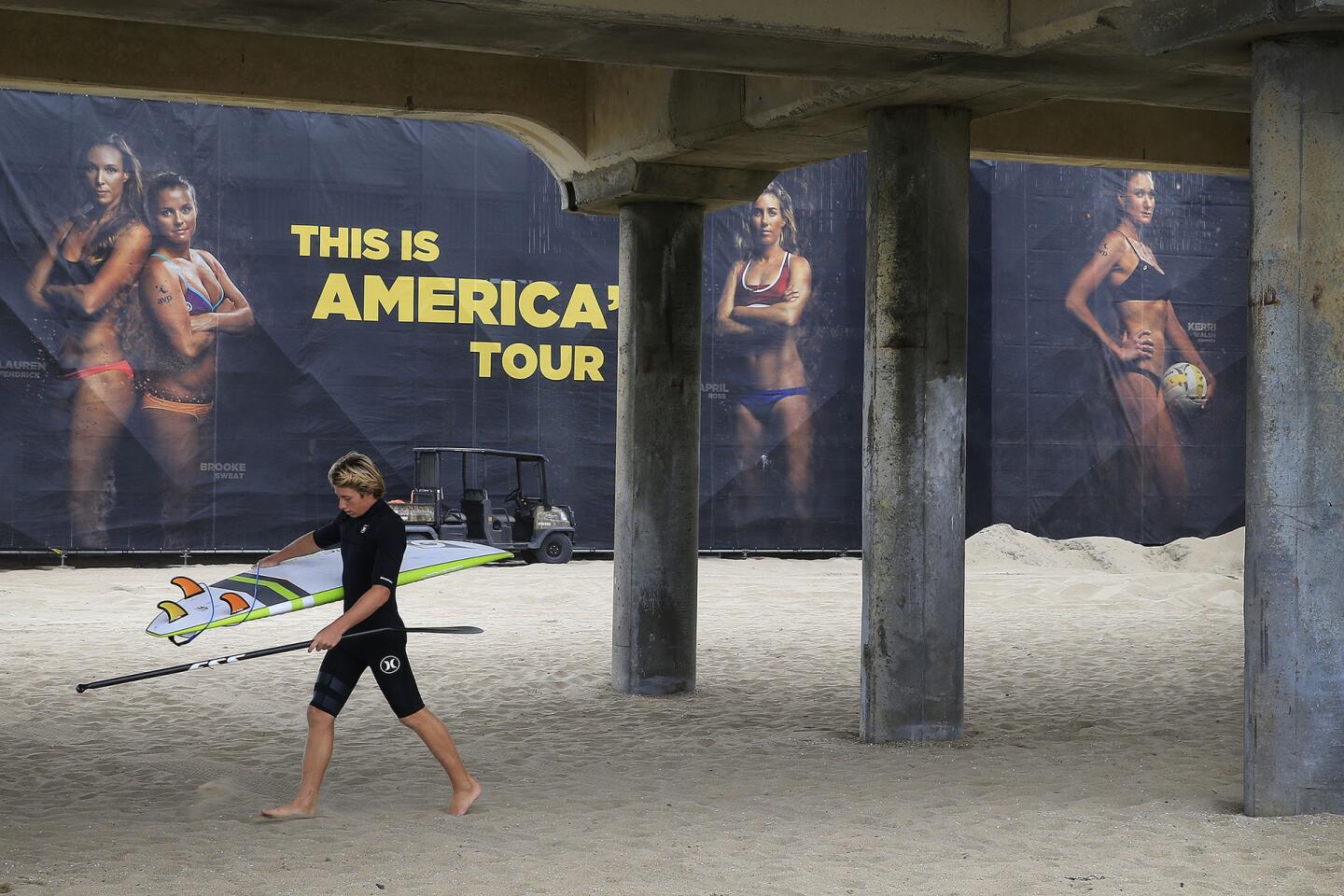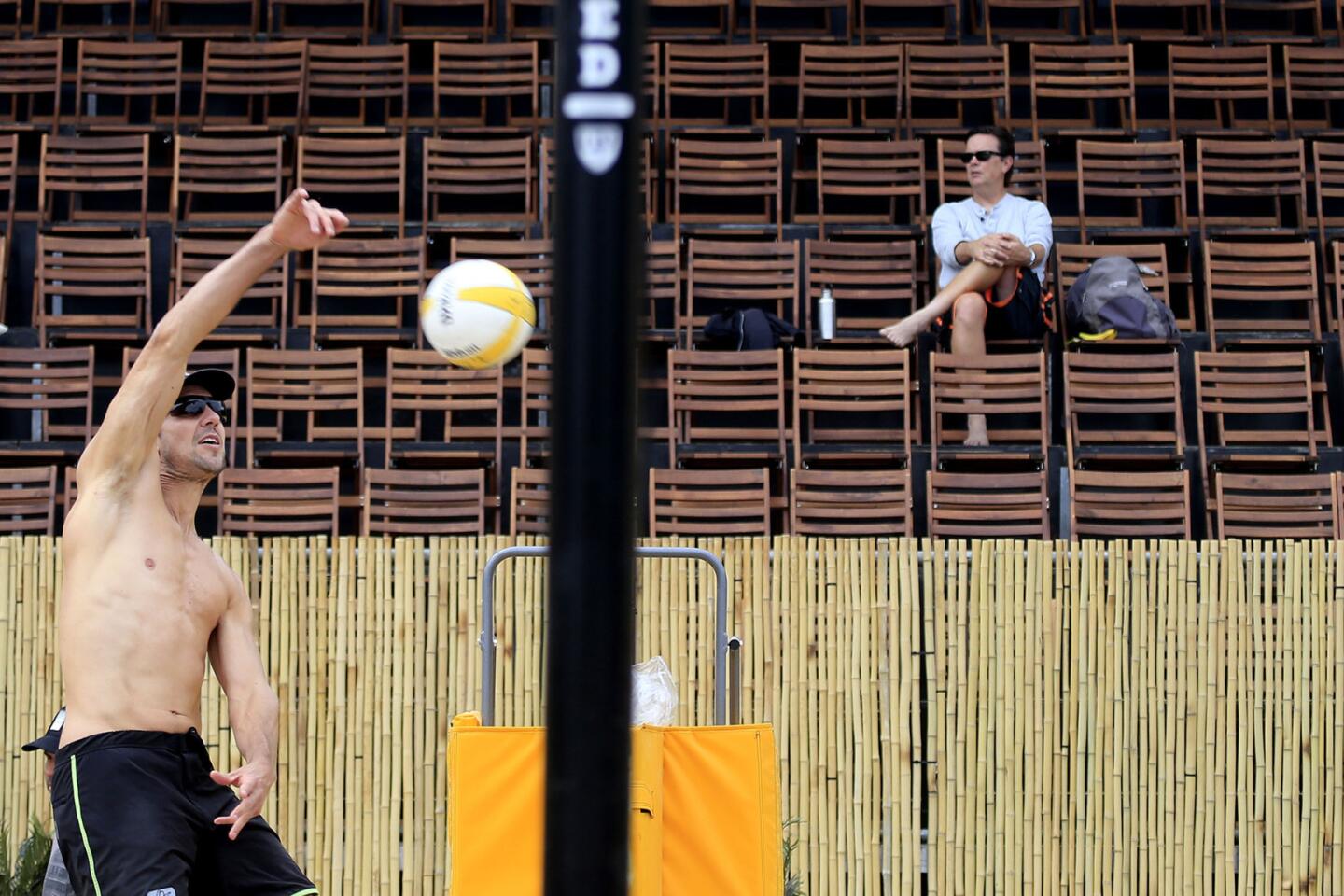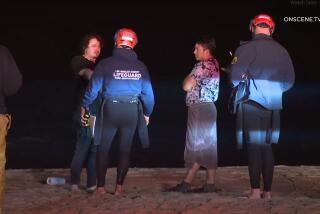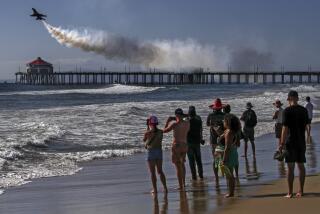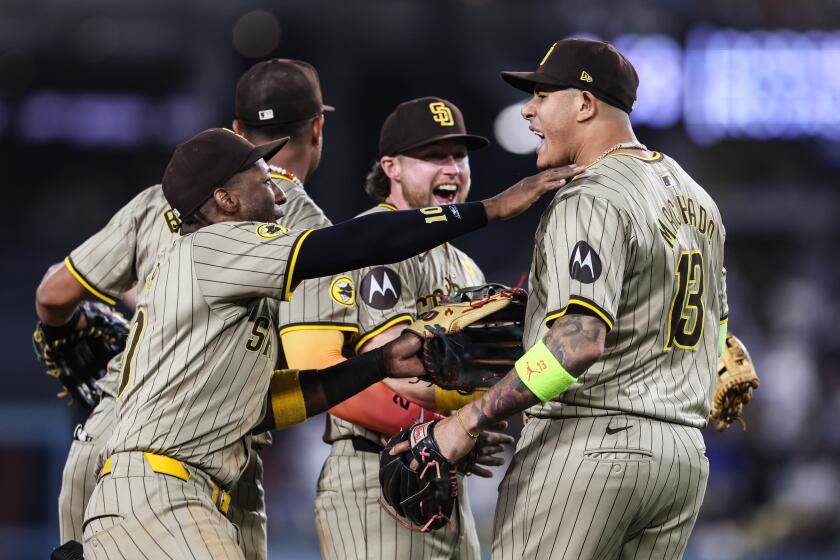Huntington Beach still a major-event player despite memories of violent incidents in ‘Surf City’
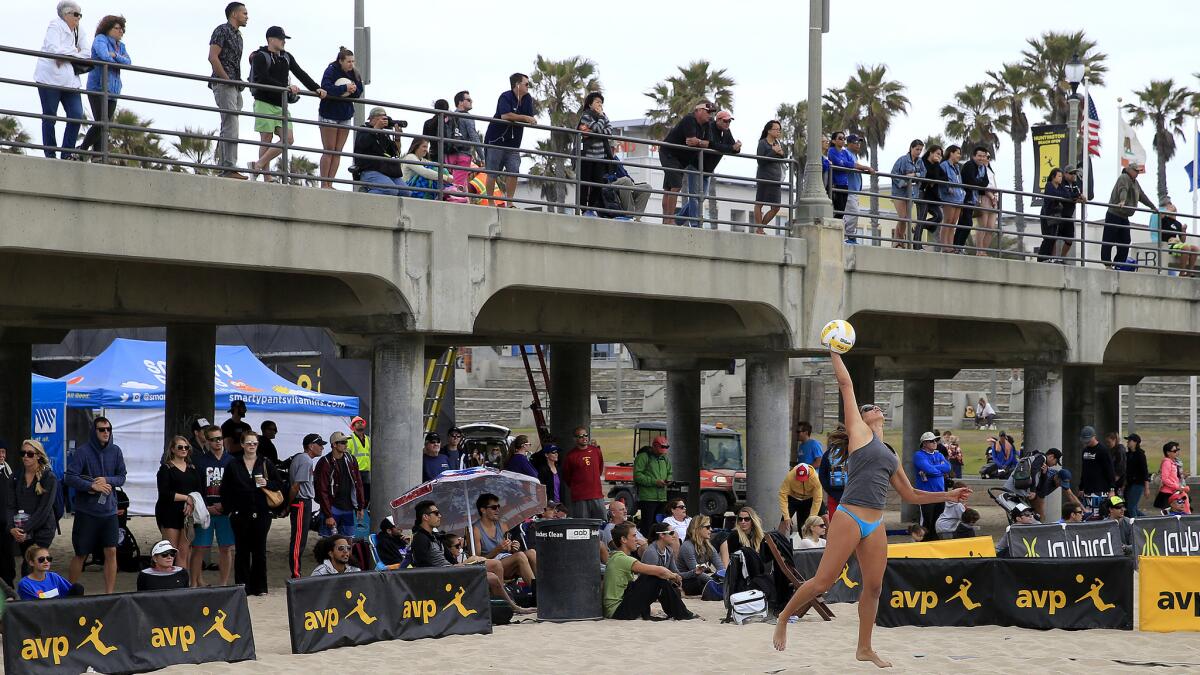
Fans watch beach volleyball players from behind and above the court during the AVP Huntington Beach Open, which runs through Sunday.
Not enough time has passed for people around Huntington Beach to forget about what happened that day.
Crowds surged up Main Street at dusk, roiling past shops and restaurants. The mood turned ugly as fights broke out and someone rammed a stop sign through a bike shop’s front window.
“Two men climbed onto the roof of Mexican restaurant a few doors down from me,” said Susie Smith, who owns a salon. “They tried to set a fire . . . it was scary.”
The melee that broke out during the U.S. Open of Surfing in 2013 remains a disquieting memory, but it has not stopped this beach community from continuing to host major events that befit its self-proclaimed title of “Surf City USA”
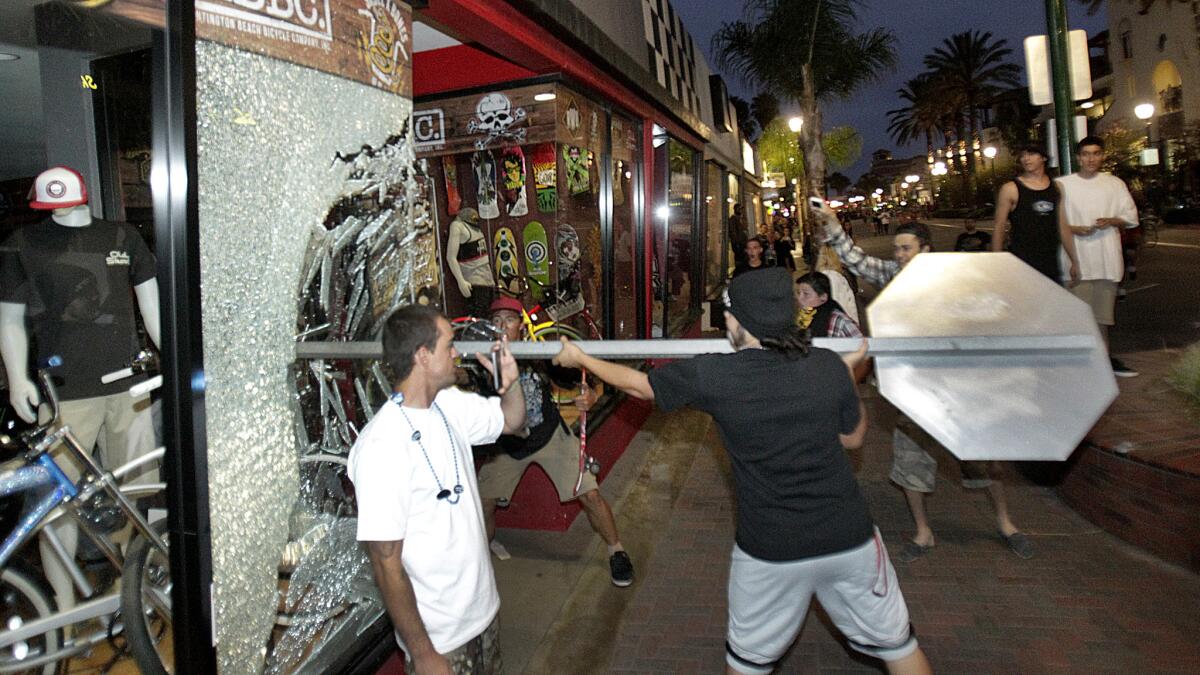
A rioter pushes a stop sign through a window of the retailer Easyrider, at Main and Orange streets in downtown Huntington Beach, following the U.S. Open of Surfing contest finals July 28, 2013.
The U.S. Open has returned each summer — albeit with greater restrictions and more police — and Huntington Beach remains a regular stop for pro skateboarding, BMX and beach volleyball.
This week, the AVP tour returns with a spate of Olympic hopefuls competing on sand courts through Sunday.
A temporary stadium made of scaffolding and cloth has been erected beside the pier where bright flags flutter. The locals seem enthusiastic.
“Sure, we have problems from time to time, but these events are great for us,” said Kim Kramer, a community activist who lives four blocks from downtown. “This is what we’re all about.”
Huntington Beach feels like the quintessential seaside town on a weekday afternoon with a cool breeze spinning off the ocean.
Tourists stop for late lunch at sidewalk cafes, shaded from the sun by rows of colorful umbrellas. Skateboarders and bicyclists drift past in no particular hurry.
Just across Pacific Coast Highway, a bleached ribbon of sand stretches for miles in either direction. It’s no surprise that beach and action sports are drawn to this place.
“The vibe is really cool,” said Todd Rogers, a veteran volleyball player. “They embrace everything that has to do with the beach.”
The town’s sporting history dates to 1933, when local lifeguards sponsored a small surf competition. In 1959, a West Coast championship drew 73 surfers, according to the International Surfing Museum, which also happens to be in Huntington Beach.
By the early 1980s, the Ocean Pacific apparel company had established a major pro contest dubbed “the Super Bowl of surfing” beside the pier.
Troubles began soon after.
A bikini contest at the 1983 OP Pro triggered a confrontation as rowdy spectators tried to strip the bathing suits off contestants. Police quickly moved in and shut down the beach.
Three years later, hundreds of youths attending the 1986 contest rampaged through town, pelting officers with rocks and bottles. Again, the incident was linked to a few spectators assaulting young women.
“Whenever we’ve had issues, it was because the event was geared more toward free concerts and other things instead of just the competition,” Mayor Jim Katapodis said.
Huntington Beach began hosting pro beach volleyball tournaments on a regular basis in the late 1980s, but those events always seemed different to residents.
The crowds tended to be smaller, with families and hard-core fans who cared about the sport more than partying.
“They draw a really nice element,” said Bob Bolen, a local surfboard shaper and realtor. “Lots of kids.”
Through much of the 1990s and early 2000s, the annual surf and volleyball events went smoothly. Skateboard and BMX contests eventually joined the mix.
City officials have never studied the economic impact of hosting beach sports, but Katapodis suspects that television coverage might draw visitors to a town that relies on tourist dollars.
Local restaurants and gift shops report increased business from throngs of fans.
“When you drive down PCH, it’s always packed when they have those tournaments,” said Jessica Turner, manager at the Sugar Shack Cafe, a local favorite on Main Street. “I’m sure it helps.”
Not that everyone profits. Smith doesn’t gain any new salon clients and Bolen doesn’t sell any houses. Kramer has heard grumbling from homeowners who struggle to find parking in small neighborhoods along the coast.
Bolen discounts such talk, saying: “If you don’t like people coming to your town, move to Garden Grove.”
But concerns grew as the U.S. Open drew larger, rowdier crowds. The 2013 incident had some residents calling for an end to hosting surf contests.
“There was a fear factor,” Smith said. “People were afraid of possible rioting again.”
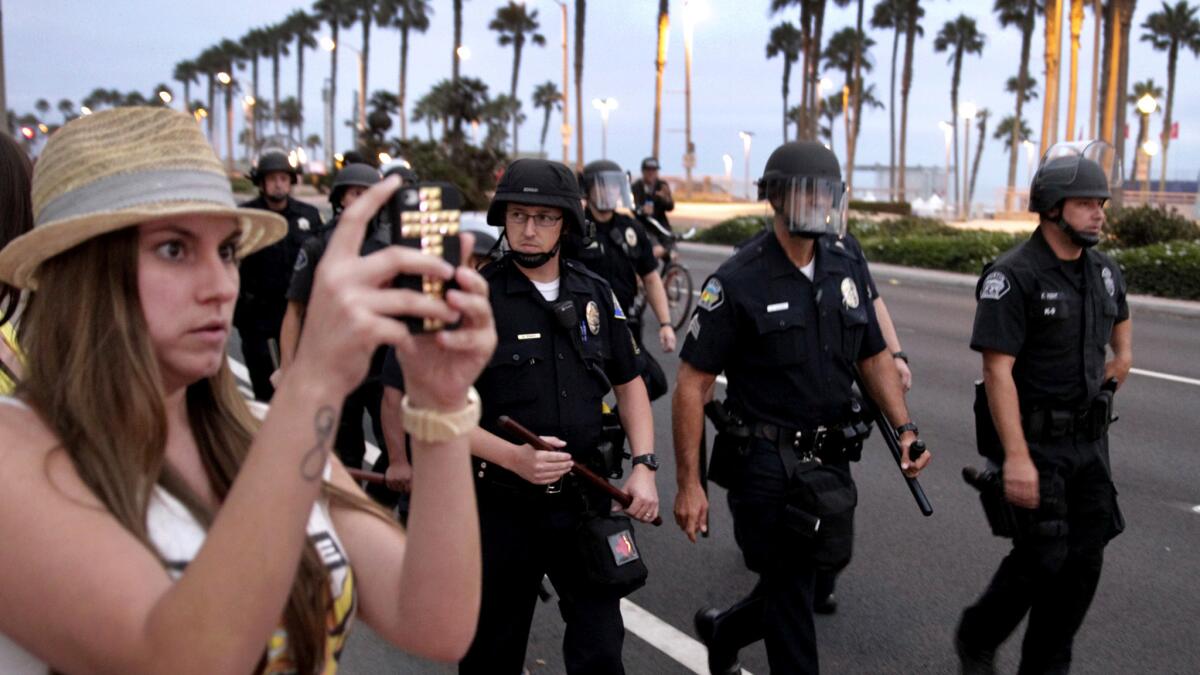
A woman takes photos as a large police force gets into position to fend off rioters along Pacific Coast Highway in downtown Huntington Beach following the US Open of Surfing contest finals on July 28, 2013.
The city negotiated with promoter IMG Action Sports to scale things down. When the contest returned the following summer, there were no alcohol sales, no live music and no public skate bowl.
Police increased foot patrols and brought in mounted officers.
“A no-nonsense approach was being taken,” department officials said in an email to The Times.
It seems the effort — and two years of incident-free contests since then — have eased concerns. No one seemed the least bit worried about volleyball coming to town this weekend.
As qualifying matches approached, workers put the finishing touches on that temporary stadium by the sea. A banner strung over Main Street welcomed players and fans.
And business proceeded as usual at the Easyrider bike shop, which had its plate-glass window smashed in the 2013 disturbance.
“It’s a total bummer that it happened,” assistant manager Bobby Castro said. “But a few stupid people aren’t going to change the way we do things here.”
Follow David Wharton on Twitter: @LATimesWharton
More to Read
Go beyond the scoreboard
Get the latest on L.A.'s teams in the daily Sports Report newsletter.
You may occasionally receive promotional content from the Los Angeles Times.

